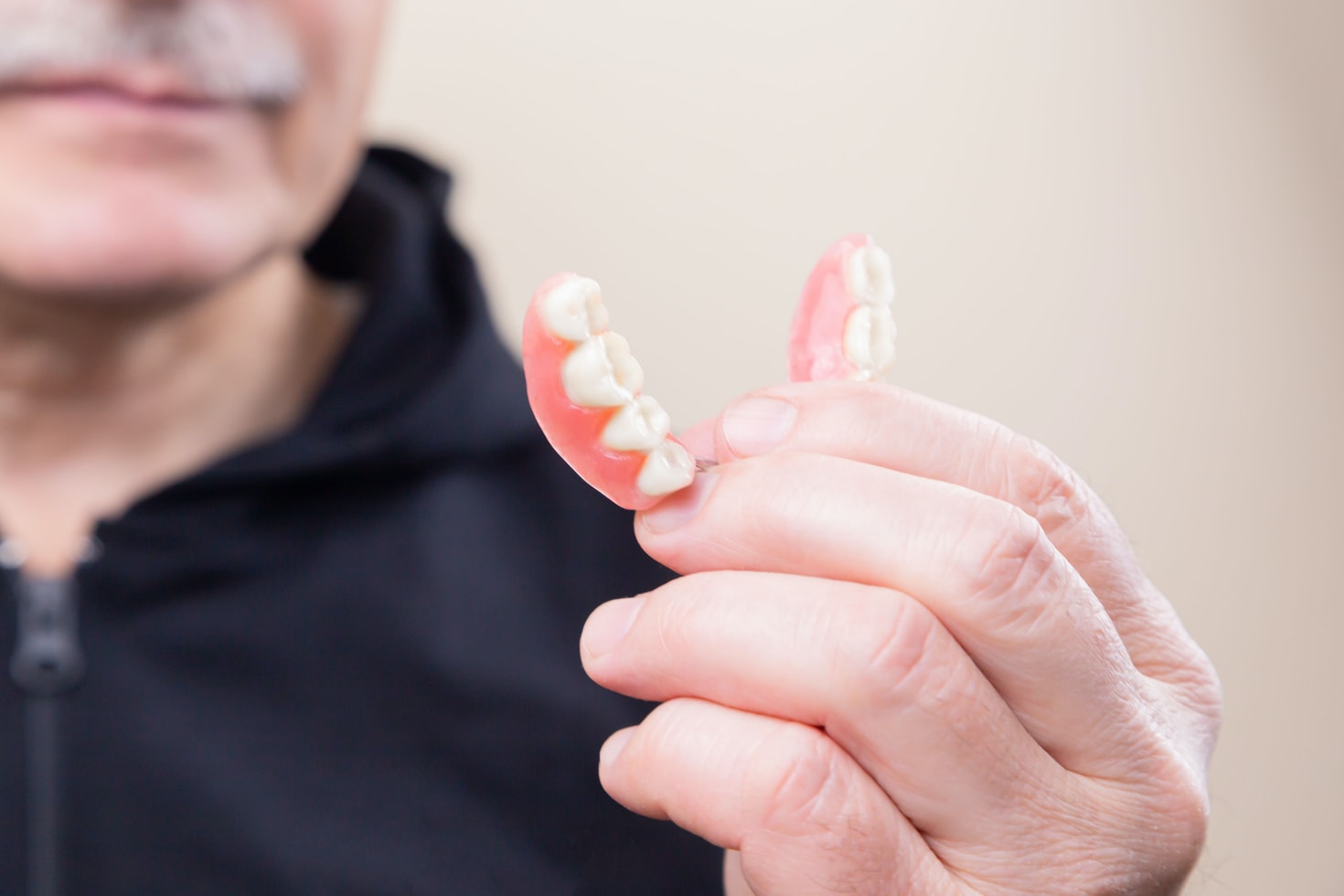A common misconception among those adopting dentures seems to be that you would never need to bother about your smile again. The fact is that you should be concerned regarding your “teeth” since dentures, like natural teeth, may store bacteria. Dentures, like real teeth, can absorb stains and become discolored. You must engage in maintaining your prostheses fresh for the optimum long-term wellness and look.
What is a denture?
When an individual is lacking the majority of their tooth structure, dentures are the best solution. These devices appear natural and assist the user in regaining normal tooth function.
A denture is a detachable tooth and tissue prosthesis that replaces damaged teeth. There are two kinds of dentures: full dentures and fractional dentures. When all of the teeth are lost, total dentures are utilized, whereas partial dentures are often used if some original teeth remain.
Taking care of dentures
Traditional dentures must be cleaned on a regular basis. Every night, those prostheses should be removed and washed with a denture cleanser and a brushing. Dentures must be immersed in denture fluid overnight as well.
Stains and discoloration will develop despite how carefully a person cares for their dentures. Below are some basic methods for cleaning dentures:
Regular brushing
Most people forego brushing their dentures since they believe that immersing will eliminate all of the dirt that accumulates during regular, daily wearing. After removal of the denture, the very first action you need to do is wash it with hot water as well as a denture toothbrush.
Dentures with original forms, such as fissures inside the teeth and dents where teeth are neighbors, contain many cracks and crevices that accumulate dirt and food particles. Whereas a denture is made of plastic and acrylics, it cannot develop holes or dental problems. This should not, however, imply that the buildup is innocuous.
Clean dentures after eating:
To clean food waste and other unwanted particles from your dentures, thoroughly rinse over them. You might wish to throw a cloth on the countertop or in the basin, or put extra water in the washbasin, to keep the dentures from breaking if you fall them.
Clean your mouth after removing dentures:
Wash your normal teeth with soft brushes, and wipe your mouth, temples, and ceiling of mouth with a cloth or a delicate toothbrush (palate). Eliminate any residual denture glue from your mouth if you applied it.
Professional cleanings
Another unpleasant belief held by denture users is that they will never see a physician until they have an issue. Dentures must be properly cleaned once a year. During this session, the doctor will evaluate the tissues that hold the dentures as well as their fitting as the denture has been cleaned. Expert denture cleanup can eliminate more stubborn spots that home maintenance cannot.
Soaking
Most varieties of dentures require moisture to maintain their form. Put the dentures in freshwater or a gentle denture-soaking liquid overnight. Consult your doctor about how to properly store your prosthesis overnight. Washing and immersing solutions should be used in accordance with the manufacturer’s recommendations.
Use salt
Salt is also another helpful component for denture maintenance that most persons keep in their homes. There will be two methods for cleaning dentures with salt.
One approach is to just dip a moist toothbrush in salt and then carefully clean the equipment with the brush. The second approach is immersing the denture in a mixture of one spoonful of salt diluted with fresh water overnight. After using either approach, thoroughly clean the gadget with fresh water.
Final thoughts
Patients who already have dental work to support their prostheses have a few extra cleaning duties. Implants are an excellent solution to keep a denture in place and avoid the humiliation that comes with a sloppy or ill-fitting denture. Transplantation, since they are comprised of titanium, does have the benefit of never developing cavities. However, because dental implants might develop gum infections, they must be cleaned on a regular basis.
Patients who have dental implants must remove their dentures at bedtime and clean them as recommended above. They must then wash the implants within their mouth with a brush and paste prescribed by the Lynnwood Denture Repair. Plaque removal from implantation is critical for avoiding gum infection and preserving the implants’ long-term functionality.

